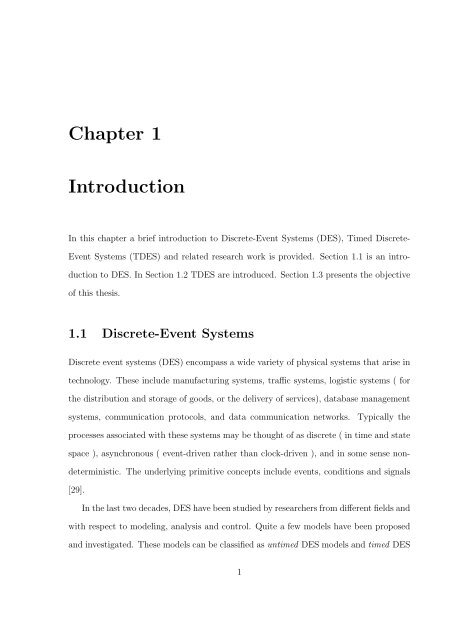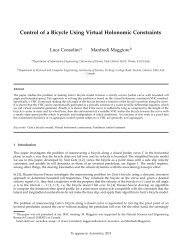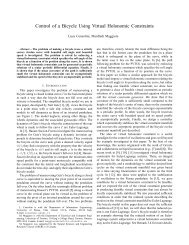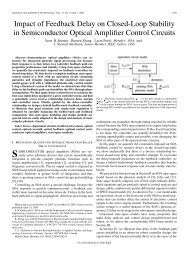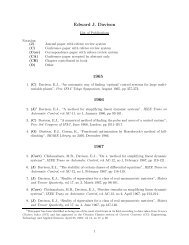State Based Control of Timed Discrete Event Systems using Binary ...
State Based Control of Timed Discrete Event Systems using Binary ...
State Based Control of Timed Discrete Event Systems using Binary ...
Create successful ePaper yourself
Turn your PDF publications into a flip-book with our unique Google optimized e-Paper software.
Chapter 1IntroductionIn this chapter a brief introduction to <strong>Discrete</strong>-<strong>Event</strong> <strong>Systems</strong> (DES), <strong>Timed</strong> <strong>Discrete</strong>-<strong>Event</strong> <strong>Systems</strong> (TDES) and related research work is provided. Section 1.1 is an introductionto DES. In Section 1.2 TDES are introduced. Section 1.3 presents the objective<strong>of</strong> this thesis.1.1 <strong>Discrete</strong>-<strong>Event</strong> <strong>Systems</strong><strong>Discrete</strong> event systems (DES) encompass a wide variety <strong>of</strong> physical systems that arise intechnology. These include manufacturing systems, traffic systems, logistic systems ( forthe distribution and storage <strong>of</strong> goods, or the delivery <strong>of</strong> services), database managementsystems, communication protocols, and data communication networks.Typically theprocesses associated with these systems may be thought <strong>of</strong> as discrete ( in time and statespace ), asynchronous ( event-driven rather than clock-driven ), and in some sense nondeterministic.The underlying primitive concepts include events, conditions and signals[29].In the last two decades, DES have been studied by researchers from different fields andwith respect to modeling, analysis and control. Quite a few models have been proposedand investigated. These models can be classified as untimed DES models and timed DES1


